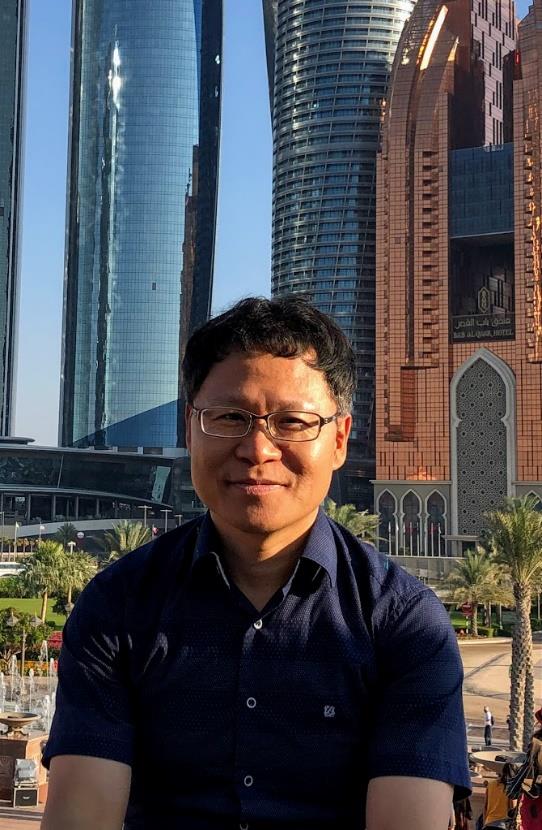Congress Program (PDF)
Program-at-a-glance

Keynote Speeches
12-DEC, 11am–12pm
Prof. Dr. Yung-Cheol Byun (Jeju University, South Korea)

Renewable Energy and Fault Detection in Wind Turbines using Machine Learning
Abstract:
Renewable energy often referred to as clean energy, comes from natural sources or processes that are constantly replenished. Wind turbines are widely used in the world to generate clean renewable energy from wind. The key problem of wind energy applications is to improve the reliability of wind turbines and reduce their downtime. Identifying the faults of wind turbines and maintaining them in time will improve the reliability of wind turbines and the efficiency of energy use. We have performed fault identification through a regression model using stator temperature as a target variable. Fault classification through a stacking ensemble classifier has also been proposed. Therefore, we can detect whether the fault situation happens and what fault occurs now. It is necessary to predict whether a fault will occur, and if so, what type of fault will occur in the future. Multimodal-based fault prognosis has been proposed for improved fault identification and classification in the future. In the model, we have different regression and classification models working independently, and then we combine the output of these modal sensors to obtain a refined result.
Short Biography
Dr. Yungcheol Byun is a full professor at the Computer Engineering Department (CE) at Jeju National University. His research interests include the areas of AI & Machine Learning, Pattern Recognition, Blockchain and Deep Learning-based Applications, Big Data and Knowledge Discovery, Time Series Data Analysis and Prediction, Intelligent Agent, Image Processing and Medical Applications, and Recommendation Systems. He directs the Machine Learning Laboratory at the Computer Engineering Department. Recently, he had research activities at University of Florida as a visiting professor from 2012 to 2014. He is currently serving as a director of Information Science Technology Institute, a director of Advanced Science Technology Research Center of Jeju National University, and other academic societies.
Outside of his research activities, Dr. Byun has been hosting international conferences including CNSI (Computer, Network, Systems, and Industrial Engineering), ICESI (Electric Vehicle, Smart Grid, and Information Technology), and serving as a conference and workshop chair, program chair, and session chair in various international conferences and workshops.
Dr. Byun was born in Jeju, Korea, and received his Ph.D. and MS from Yonsei University in 1995 and 2001 respectively, and BS from Jeju National University in 1993. Before joining Jeju National University, he worked as a special lecturer in SAMSUNG Electronics in 2000 and 2001. From 2001 to 2003, he was a senior researcher of Electronics and Telecommunications Research Institute (ETRI). He was promoted to join Jeju National University as an assistant professor in 2003.
13-DEC, 11am-12pm
Prof. Dr. Virach Sornlertlamvanich (Thammasat Univ, Thailand & Musashino University, Japan)

Harmonization of Humanitarianism and AI — A Case of Thammasat AI City —
Abstract
In recent years, artificial intelligence (AI) technology significantly gains its potential in real-life applications. There are many good examples that machines can interact with people such as speaking the same language as humans, learning the patient’s symptoms by disease diagnosing recognizing objects or activities from images, or identifying emotion from facial expressions. The current challenged implementation is the efficiency of city operation insight and humanitarian action. This research proposes an AI platform for better living and data sharing across multiple domains. Since the data in the smart city concept are domain-specific processed, the existing smart city architecture is suffered from cross-domain data interpretation. To go beyond the digital transformation efforts in smart city development, the AI city is created on the architecture of cross-domain data connectivity and transform learning in the machine learning paradigm. In this research, the health and human behavioral data are targeted at human traceability and contactless technologies. To measure the inhabitant’s quality of life (QoL), the basic emotion expression study is conducted to interpret the emotional states and the mental health of people in the urbanized city. The results of information augmentation draw attention to the immersive visualization of the harmonization of humanitarianism and AI of the Thammasat model.
Biography
Prof. Dr. Virach Sornlertlamvanich was esteemed “The Researcher of the Year 2001” by the Nation Newspaper (Thailand). Observing his continuous contributions in the field of Computer Engineering, he was conclusively awarded “National Distinguished Researcher Award 2003” in Information Technology and Communication by the National Research Council of Thailand, “ASEAN Outstanding Engineering Achievement Award 2011” by ASEAN Federation of Engineering Organizations (AFEO), and followed by “Outstanding Alumni Award, Tokyo Tech Alumni Association (Thailand Chapter)” in 2021.
He received a doctoral degree in Computer Engineering from the Tokyo Institute of Technology in 1998. He worked with NEC Corporation as a sub-project leader for Thai language processing in the Multi-lingual Machine Translation Project. He joined the National Electronics and Computer Technology Center (NECTEC) in 1992. His research interests are in the area of Natural Language Processing, Machine Translation, Information Retrieval, Knowledge Engineering, and Artificial Intelligence. His recent efforts are on the research and development of technology for Digitized Thailand (2009) which is aimed to establish a service platform for digital content and applications to accomplish the creative industry. He is also a pioneer in establishing an AI research platform for Thammasat AI City at Rangsit Campus during 2020-2023.